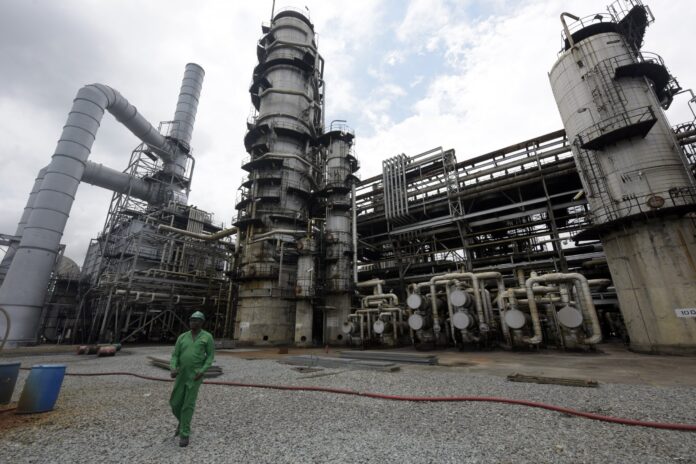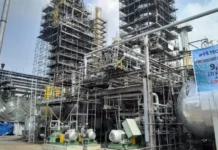The Nigerian National Petroleum Company Limited (NNPCL) has confirmed that the Port Harcourt refinery is operational, countering circulating rumors about its functionality. The clarification came in a statement on Thursday, emphasizing that the old refinery is actively refining crude oil and producing multiple by-products.
In a statement titled “Halt the rumours: Port Harcourt old refinery is up and running, producing by-products of crude oil,” the Petroleum Products Retail Outlets Owners Association of Nigeria (PETROAN) disclosed that the refinery is currently operating at 70% capacity, with plans to increase to 90%. P
President Joseph Obele stated that the refinery’s functional plant is the older unit, which has a capacity of 60,000 barrels per day, while the newer refinery, with a capacity of 200,000 barrels per day, remains under rehabilitation.
Contradicting some claims, NNPCL spokesperson Olufemi Soneye stated on Friday that the refinery is operating at 90% capacity, translating to the production of 1.4 million liters of Premium Motor Spirit (PMS) daily.
“The refinery’s nameplate capacity is 60,000 barrels per day, and it is currently running at 90% throughput, producing Straight-Run Gasoline (Naptha), blended into PMS, along with other products like diesel and kerosene,” Soneye explained.

The statement also addressed allegations by Timothy Mgbere, a self-identified community representative, who claimed the refinery was only blending old stock and had not resumed proper operations. NNPCL dismissed these allegations, citing a lack of understanding of the refinery’s processes.
“Both the Old and New Port Harcourt refineries share integrated operations, including common utilities, storage tanks, and a unified loading terminal,” NNPCL clarified. “The claim that old stock was loaded from one gantry while new stock can only be processed at another is unfounded and contradictory.”
NNPCL called on the public to disregard these “ignorant and mischievous” claims, reaffirming that the old refinery is fully operational and contributing to domestic fuel supply.
While the old refinery is operational, efforts to rehabilitate the newer refinery continue, with expectations of commencing production soon. This move is seen as critical to enhancing Nigeria’s refining capacity and reducing reliance on fuel imports.
NNPCL reiterated its commitment to transparency and efficient energy production, urging Nigerians to focus on the progress being made in revitalizing the nation’s refining sector.




